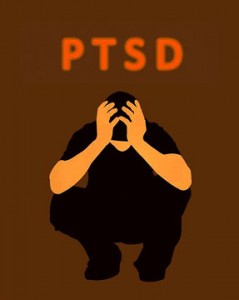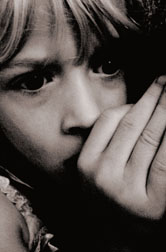 The average child between 8 and 18 years old spends about 7.5 hours per day in front of a screen (TV, computer, phone, etc.), according to the U.S. government (1). This is a very sad statistic that has many people worried about the activity level of our children. It is recommended that children have at least 60 minutes of activity per day, but that goal is not always reached.
The average child between 8 and 18 years old spends about 7.5 hours per day in front of a screen (TV, computer, phone, etc.), according to the U.S. government (1). This is a very sad statistic that has many people worried about the activity level of our children. It is recommended that children have at least 60 minutes of activity per day, but that goal is not always reached.
In fact, a study of high school students in 2013 found that less than 30% had reached that goal in the previous week (2). Physical activity is defined as “any body movement that works your muscles and requires more energy than resting (3).” Some people think that physical activity means playing sports, but there are many other things that quality. Doing yard work, going for a walk, or going for a swim in the pool are all examples of physical activity. If you are a parent that is striving to keep your kids active and away from the screen, here are a few things that could help.
- Promote it. If you do not show interest in physical activity, chances are good that your children won’t either. Kids will be deterred from outside play when they hear parents or other kids complaining about how hot it is or how tired they are. Physical activity needs to be portrayed as something fun and something to look forward to, not something to dread. One common mistake that people make is to promote physical activity in boys more than girls. Girls need just as much exercise as boys and they are just a capable of doing vigorous activity (4).
- Participate in it. Don’t tell your kids to go outside and play – go with them. Play catch, make up a game, go for a walk, or anything else that your kids mention that they want to do. Instead of telling them to go rake the yard, grab a rake and do it together. Make it fun by making it a competition or offer a reward for a job well done.
- Mix it up. Kids need a variety of activities to keep them interested. Play in your backyard, walk to the park, go to a gym, visit the zoo, go to the beach, schedule a play date with friends – all of these things can promote healthy habits in your kids without calling it “exercise.”
- Give them the opportunity. There are many kids that would love to try a sport, learn karate, do gymnastics, etc. but are never given the chance. If your child shows interest in something, do your best to give them the opportunity. Instead of spending money on a video game, spend it on sports equipment for your home or use it join a team sport (5).
- Reward it. Watching television or playing games is not bad in moderation. After a long day of yard work, reward the kids with a trip to the movie theatre. After a long walk to the park while on a play date with friends, let them play a game together. Cutting out screen time altogether will most likely have adverse effects.
No matter what your children enjoy doing, make regular activity one of them. By promoting it, participating in it, mixing it up, giving them the opportunity, and rewarding them for taking part you can help encourage your family to get active daily.
Mark D. Parisi, Psy.D. & Associates, P.C. provides counseling, psychological testing, and psychotropic medication management in Mount Prospect and Chicago – serving surrounding Cook, Lake, DuPage, and Will Counties. They accept most insurance and offer extremely affordable sliding scale rates. Call (847) 909-9858 for a free, no-obligation telephone consultation.
###
Sources:
- Reduce Screen Time, Screen time statistics, 2013, https://www.nhlbi.nih.gov/health/educational/wecan/reduce-screen-time/
- Physical Activity Facts, Activity level statistics, 2015, http://www.cdc.gov/healthyyouth/physicalactivity/facts.htm
- What Is Physical Activity? Definition of physical activity, 2011, http://www.nhlbi.nih.gov/health/health-topics/topics/physAdding Physical Activity to Your Life, Tips for staying active, 2015, http://www.cdc.gov/physicalactivity/basics/adding-pa/activities-children.html
- Parents’ Endorsement of Vigorous Team Sports Increases Children’s Physical Activity, Say Researchers, Parents promoting sports, 2009, http://www.apa.org/news/press/releases/2009/07/parents-exercise.aspx


 PTSD, or post-traumatic stress disorder, is an anxiety problem that develops in some people after extremely traumatic events, such as combat, crime, an accident or natural disaster, according to the American Psychological Association. (1) PTSD is often acted out through nightmares, hypervigilance, flashbacks, anger, or depression and can often complicate close relationships like families.
PTSD, or post-traumatic stress disorder, is an anxiety problem that develops in some people after extremely traumatic events, such as combat, crime, an accident or natural disaster, according to the American Psychological Association. (1) PTSD is often acted out through nightmares, hypervigilance, flashbacks, anger, or depression and can often complicate close relationships like families. It’s unfortunate today, how tragedy has become such a routine part of our lives. Whether on a small scale, such as the death of a loved one or on a national scale with the influx of terrorism, tragedy is hitting home far more frequently than ever before in our history. We would be gullible to believe these tragedies aren’t affecting our children too.
It’s unfortunate today, how tragedy has become such a routine part of our lives. Whether on a small scale, such as the death of a loved one or on a national scale with the influx of terrorism, tragedy is hitting home far more frequently than ever before in our history. We would be gullible to believe these tragedies aren’t affecting our children too. Between televisions, video games, tablets, computers, and smartphones children today are bombarded with an overwhelming supply of screen technology but is all the screen time weighing too heavily on your child? In 2013 the average 8 to 10-year-old spent nearly 8 hours every day with a variety of different media, and teenagers spent eleven or more hours per day, according to the American Academy of Pediatrics (AAP).(1). Yikes!
Between televisions, video games, tablets, computers, and smartphones children today are bombarded with an overwhelming supply of screen technology but is all the screen time weighing too heavily on your child? In 2013 the average 8 to 10-year-old spent nearly 8 hours every day with a variety of different media, and teenagers spent eleven or more hours per day, according to the American Academy of Pediatrics (AAP).(1). Yikes!


